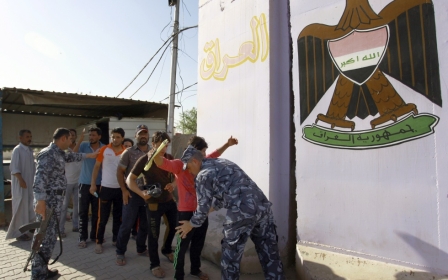Kuwait warns that ISIL targets whole Mideast

A Kuwaiti official on Thursday warned against the rising danger posed to the Middle East region by the self-styled Islamic State of Iraq and the Levant (ISIL), calling for stepped-up regional security cooperation for countering this organization.
Kuwaiti Foreign Ministry Undersecretary Khaled Al-Jarallah, in a statement, reiterated his country's warning against the threat posed by the organization on the region, saying member states in the Gulf Cooperation Council needed to conduct more security coordination in this regard.
Al-Jarallah said the militant organization does not only target Kuwait, but also all other countries in the region.
"We had warned about the perilous nature of the situation in Iraq before," Al-Jarallah said.
Over the past few days, ISIL, which is made up of hundreds of Arab and foreign fighters, managed to overrun vast swaths of land in Iraq, forcing tens of thousands of Iraqi soldiers to flee their posts and leave their military equipment behind.
The militant movement had recently published a map of its envisioned state, which also included Kuwait among other countries.
However, there are a number of Iraqi voices inside the country and abroad who have dismissed the reported role of ISIL in Iraq, stressing that there are other elements that have contributed to the withdrawal of Iraqi forces from Sunni-majority areas in Iraq.
They argue that there is widespread discontent with the policies of Prime Minister Nuri al-Maliki, which lead many Iraqi youths and militants – who are not associated with ISIL – to join the fight against what they see as sectarian army.
"The Western media got the story wrong about ISIL today, the same way they had when reporting about the alleged WMDs in the run up to the 2003 US-led invasion of Iraq," Dr Burhan Al-Chalabi, former Chairman of the British Iraqi Foundation, told Middle East Eye.
"What is happening in the Sunni areas now is more about an uprising against oppressive sectarian policies since 2003 and less about ISIL, which very few people like," he added.
Stay informed with MEE's newsletters
Sign up to get the latest alerts, insights and analysis, starting with Turkey Unpacked
Middle East Eye delivers independent and unrivalled coverage and analysis of the Middle East, North Africa and beyond. To learn more about republishing this content and the associated fees, please fill out this form. More about MEE can be found here.




